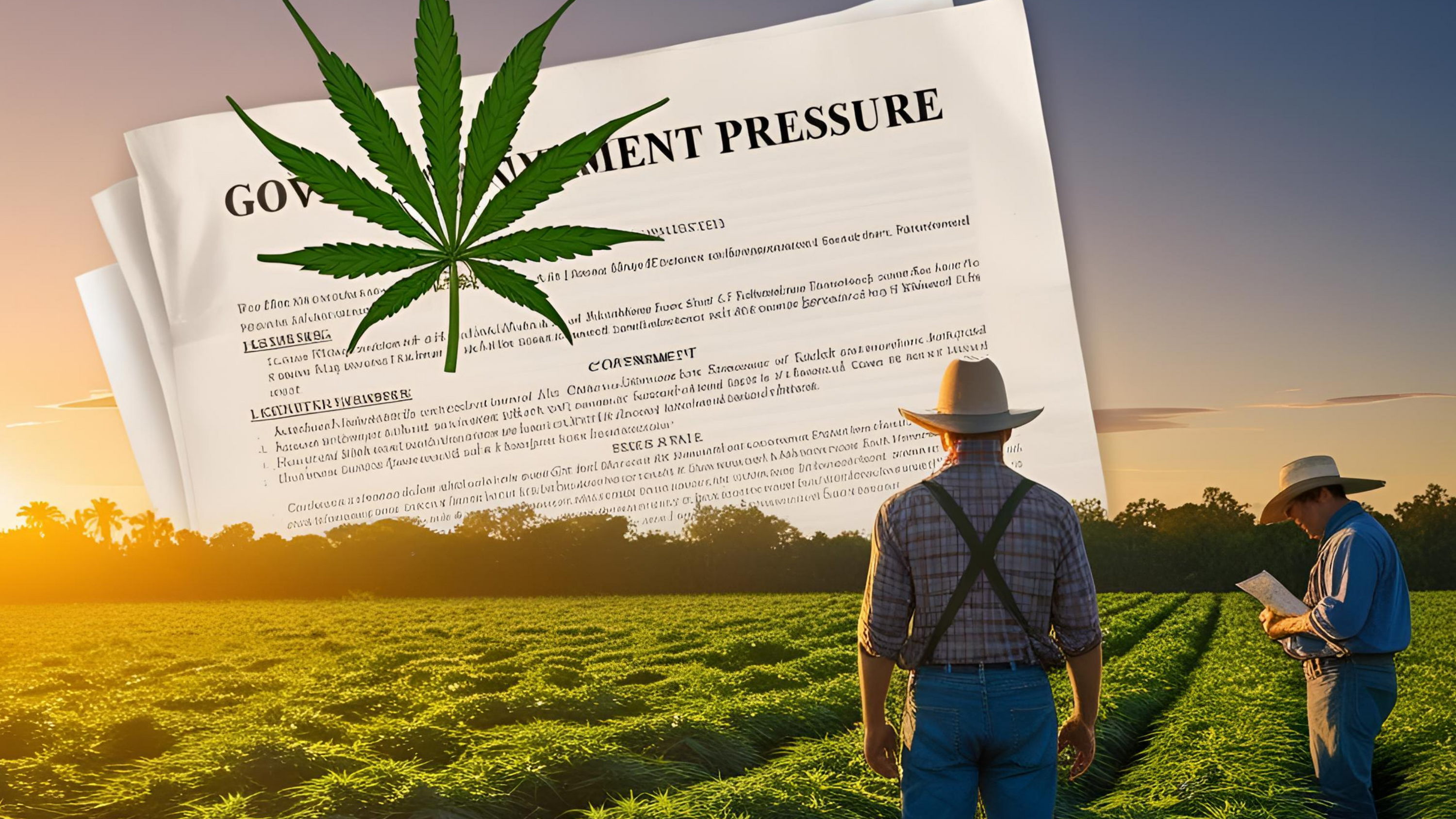
Florida’s House Bill 7027 Passed. Here’s How It Is Reshaping the Hemp Industry
House Bill 7027 has just made its way through the Florida legislature, sending shockwaves through the state’s $12.9 billion hemp industry. For thousands of small farmers, family-owned businesses, and industry professionals, the passage of this bill raises critical questions. What’s changing? Who stands to lose the most? And, perhaps most importantly, what can supporters of Florida hemp do right now to protect local livelihoods?
If you own or work for a hemp business, grow hemp on Florida soil, or watch the evolving cannabis landscape closely, this post breaks down HB 7027’s real-life implications. Here’s what you need to know to protect your interests, plan for the road ahead, and help safeguard Florida’s hemp future.
Understanding HB 7027: What’s in the Bill?
House Bill 7027 introduces a series of amendments and regulatory changes aimed at the production, sale, and marketing of hemp-derived products across Florida. While framed as an effort to clarify regulations and protect public health, the bill includes provisions with far-reaching consequences.
Key Provisions in HB 7027
-
Strict THC Limits:
Places more stringent limits on allowable THC content in hemp-derived products.
-
Age Restrictions:
Bans the sale of many hemp products—including CBD edibles, beverages, and topicals—to anyone under 21, regardless of potency.
-
Packaging and Labeling Rules:
Requires child-resistant packaging, detailed labeling, and QR codes linking to third-party lab results.
-
Ban on Certain Products:
Outlaws smokable hemp extracts, hemp-derived delta-8 and delta-10 THC, and other “novel cannabinoids.”
-
Enhanced Enforcement:
Imposes heavier penalties on non-compliant businesses, with stepped-up inspections and enforcement by state agencies.
The Stakes for Florida’s Hemp Industry
Florida’s legal hemp market is a major agricultural and economic force, employing over 100,000 people and generating $12.9 billion in annual sales. Unlike some cash crops, the industry is dominated by independent farmers, family-run processors, and locally owned retailers. The passage of HB 7027 signals a major shakeup.
Impact on Small Farms and Family Businesses
Tighter Margins and Regulatory Costs
For many small farmers, the financial burden of complying with new packaging, testing, and labeling standards is overwhelming. Instead of investing in innovation or hiring seasonal help, businesses face higher operational costs:
-
Testing and Compliance: Lab fees for every product batch can add thousands to annual expenses.
-
Packaging Redesigns: Child-proof, tamper-evident packaging often comes with minimum orders, hurting small-scale producers.
-
Lost SKUs: Many family operations have built their brands around popular items like delta-8 gummies or full-spectrum smokables. With these SKUs banned, some are losing 40-60% of their revenue overnight.
Who Is Hit the Hardest?
While large multistate operators (MSOs) may absorb the added compliance costs, small businesses face existential threats. Without significant scale, covering regulatory overhead can mean the difference between profit and bankruptcy.
“We’ve spent years building trust and relationships in our community. This bill forces us to either retool our entire product line or shut the doors for good.”
– Angela Reese, owner of Reese Family Hemp, Palatka, FL
Effects on Florida’s Farmers
Crop Planning and Uncertainty
The risk–reward equation for planting hemp in Florida just changed. Farmers are now second-guessing whether to put seed in the ground, given the uncertainty over which products will remain legal and the threat of losing access to valuable processing contracts.
Local Economic Ripple Effects
Hemp farms often support a network of seasonal workers, truckers, suppliers, and local businesses. When a farm loses half its market, the impact is felt beyond the fields. Towns where hemp is a mainstay crop may now face economic decline.
Cannabinoid Innovators Squeezed Out
Florida emerged as a hotspot for hemp-derived innovation, especially in developing novel cannabinoids like delta-8 and delta-10. HB 7027’s bans halt this momentum, forcing manufacturers to drop popular products or shift operations out of state. Entrepreneurial energy that once fueled growth is being stifled by the strict new legal landscape.
Communities at Risk Across Florida
The hemp industry isn’t just numbers and regulations; it’s families, communities, and a sense of possibility. For many rural areas, hemp farming has filled the economic void left by declining citrus and tobacco industries. Losing access to new markets or key products means lost jobs, fewer community programs, and less investment in local infrastructure.
Case Study:
Franklin County, Panhandle
Since 2019, dozens of small farms here have turned to hemp as a way to diversify income streams. With the passage of HB 7027, several operators now say they will sit out this coming planting season, which could lead to the loss of hundreds of seasonal jobs.
“Our co-op has been able to send kids to FFA and 4-H thanks to hemp. With these new rules, I don’t know that we’ll be around next year.”
– Ron Jefferson, family farmer and cooperative leader
Public Health vs. Overregulation
Proponents of HB 7027 argue the changes are necessary to protect underage users and curb unregulated cannabinoid sales. While strong safety standards are reasonable, critics contend the bill overreaches, lumping low-risk products with psychoactive cannabinoids and failing to protect honest small businesses.
Many industry leaders have expressed willingness to accept age restrictions and sensible product standards, but argue the new law makes compliance so expensive and restrictive that only large corporations will survive.
Advocating for Florida’s Hemp Future
The passage of House Bill 7027 marks a turning point. For the thousands of Floridians whose livelihoods depend on the hemp industry, the stakes couldn’t be higher. While the law is now in place, there are meaningful ways to influence how it’s implemented and to advocate for fairer rules.
Actions the Hemp Community Can Take
-
Get Organized:
Join state and national hemp associations to present a united front during regulatory hearings and rulings.
-
Meet with Lawmakers:
Set up meetings with local representatives, bringing data and personal stories to demonstrate how HB 7027 is impacting your business and community.
-
Educate the Public:
Share your story in local news, on social media, and at community forums. Humanizing the impact is more powerful than statistics alone.
-
Provide Feedback:
Participate in public comment periods for rules being drafted by the Florida Department of Agriculture and Consumer Services.
-
Support Legal Challenges:
Some provisions may be challenged in court as overbroad or unconstitutional. Stay informed about ongoing legal action.
Florida’s hemp industry is resilient, but it needs the active participation of its members and supporters to preserve what makes it special. Whether you’re a farmer, business owner, or supporter, now is the time to make your voice heard.
Protecting Family Farms Starts Now
House Bill 7027 threatens to upend the foundation of Florida’s hemp sector—its diverse, entrepreneurial, and locally rooted community. But policy is not set in stone. The voices and experiences of small business owners, farmers, and workers deserve to be a part of any future conversations.
Contact your lawmakers, share your story, and join advocacy organizations pushing for sensible reform. If enough Floridians stand together, the future of hemp can still be shaped by the families and communities who have invested everything in this promising crop.




